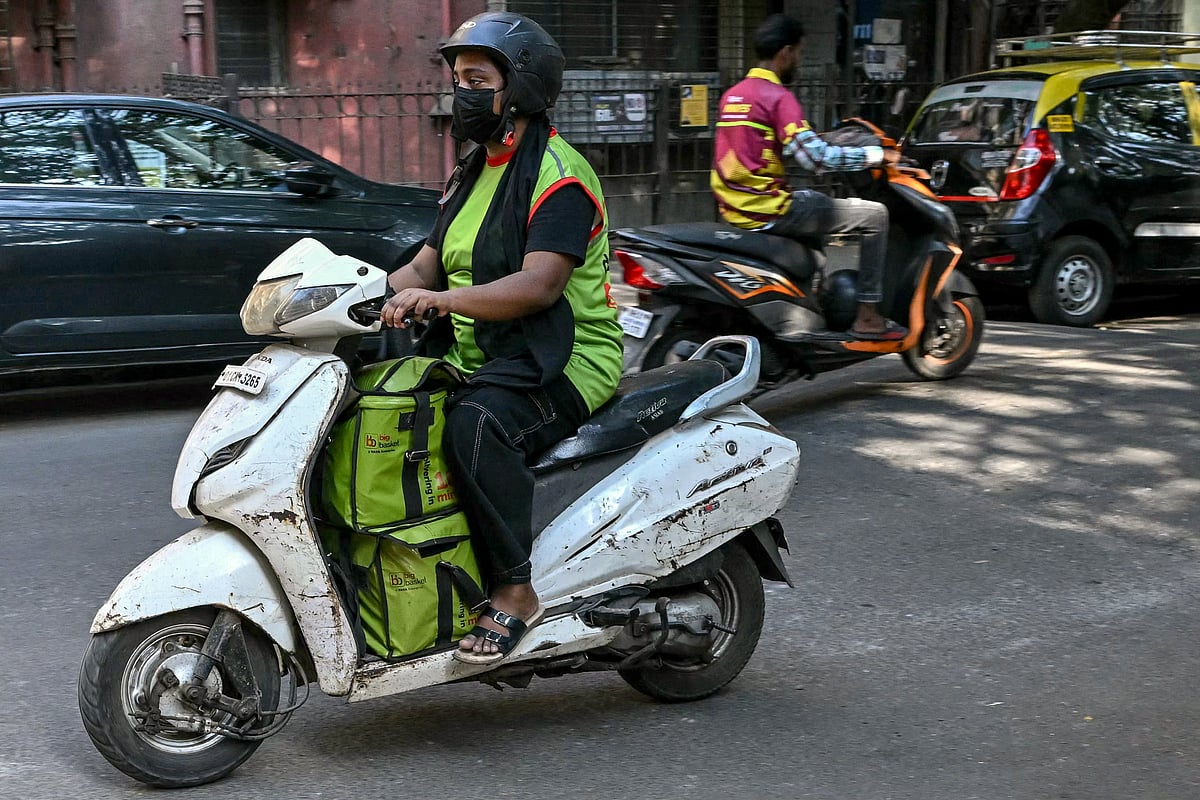India: Delivery apps cash in across country’s congested cities
Local tech companies have poured billions to set up these networks across big cities

MUMBAI- In India's sprawling financial hub of Mumbai, armies of "dabbawalas" have for decades crisscrossed the city by foot and bicycle, delivering home-cooked food to office workers keen to avoid the searing heat and traffic-snarled streets.
Now, across the country, young entrepreneurs are taking that tradition to the next level with the explosion of shopping apps that allow customers to purchase not only food and drink but anything else—from clothes to iPhones—within minutes.
The so-called quick commerce apps are redefining the retail game, disrupting not only e-commerce titans such as Amazon with their speed and efficiency but also long-established "mom-and-pop " stores that are no longer convenient enough. At a warehouse managed by online grocer BigBasket in central Mumbai, employees work with military-like precision to pull off deliveries in just 10 minutes.
These warehouses are known within the industry as "dark stores", a reference to being closed off to customers. When a new order is received, a worker leaps into action, darting through aisles filled with everything from fizzy drinks to vegetables, packing a bag of groceries handed to a motorbike rider - the modern-day "dabbawala", Hindi for "lunchbox man".
Local tech companies have poured billions to set up these nifty logistical networks across big cities, fuelling India's rapid shopping industry. For millions of customers, it's an easy way to avoid shopping in the sweltering heat - visiting multiple food stalls - and spending hours navigating the country's notorious traffic jams. Growth has been "robust", BigBasket co-founder Vipul Parekh told AFP, pointing to forecasts that indicate a compounded annual growth rate of more than 60 per cent over the next two to three years.
"When you talk of a large industry transforming and growing at this pace, that is unprecedented," he said.Delivery apps such as Getir or Jokr have faltered in Europe and the United States recently as pandemic-induced demand wore off and rising inflation pinched customer wallets.
However, sales in India have soared from $100 million in 2020 to an estimated $6 billion in 2024, according to projections by market analysis firm Datum Intelligence. According to investment bank JM Financial, this could hit $40 billion by the end of the decade.
Companies say India's quick commerce growth is partly due to the sheer number of people living in tight-packed cities within a roughly two-kilometre (one-mile) radius of a "dark store," said Parekh.
"The revenue potential in that catchment is very high," he said. He said that a lack of many traditional supermarket grocery chains in India aid the business model. Rinish Ravindra, a regular user, admits that they make him "lazy", but argues that the convenience is unbeatable.
Sign up for the Daily Briefing
Get the latest news and updates straight to your inbox
Network Links
GN StoreDownload our app
© Al Nisr Publishing LLC 2026. All rights reserved.